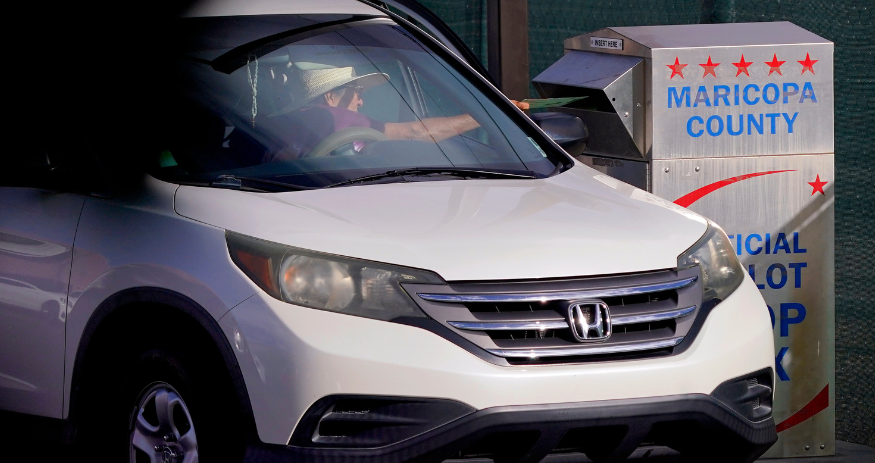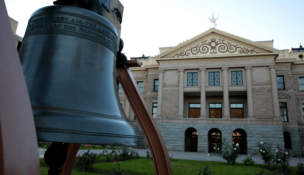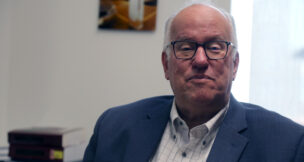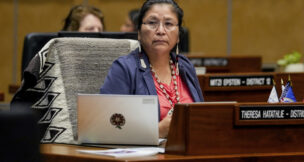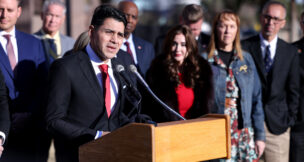Number of voters impacted registration error more than doubles
Howard Fischer, Capitol Media Services//October 1, 2024//
Number of voters impacted registration error more than doubles
Howard Fischer, Capitol Media Services//October 1, 2024//
And now there are about 218,000.
That’s the number of people that Secretary of State Adrian Fontes says are registered to vote but never provided the proof of citizenship legally required under a 2004 Arizona law. A week ago it was 97,928.
But, for the moment, it still doesn’t matter.
Fontes says the Arizona Supreme Court order that allowed the first group to vote for all the offices and propositions on the ballot also applies to everyone else. That order rejected arguments by Maricopa County Recorder Stephen Richer that the lack of citizenship proof entitled those affected to cast a ballot only for federal offices.
Under the Supreme Court order, it is only after this year’s election that officials will have to go through the list and determine whether there is proof of citizenship and, if not, what voters must do before the next election to get a full ballot.
But the ever-expanding problem has given Gina Swoboda, who chairs the Arizona Republican Party, a new chance to lash out at Fontes, a Democrat. She said that, at the very least, he should immediately provide a list of affected voters to each county recorder so they can answer the calls they are getting from people wondering about their registration.
Aaron Thacker, spokesman for the Secretary of State’s Office, said that’s not an option. He said that is precluded by the Supreme Court ruling allowing all those with questioned citizenship proof to vote via a full ballot this year.
In fact, the justices said any effort to strip people of their registration this close to an election would be illegal because they would not be entitled to “due process” to prove they are, in fact, entitled to vote.
Swoboda, however, said that’s not her reading of the court order.
She conceded, though, that at least for this election, the question is academic: Everyone on the list is getting a full ballot. But Swoboda said the changing numbers themselves – at one time the estimate was as high as 300,000 – become a problem.
“That is very bad for confidence,” Swoboda told Capitol Media Services.
She said some people are still raising questions about the outcomes in 2020 and 2022, though multiple courts have thrown out claims that the results were not accurate. Now comes this.
“I don’t think all voters can take it anymore,” she said.
“It will just collapse, and they’ll stop voting,” Swoboda continued. “And that would be a nightmare.”
All of this still leaves the question: What happened to cause the numbers to balloon?
Thacker said data is still being gathered. But he said this all relates to the state’s continued efforts to figure out what caused the problem in the first place.
It starts with a 2004 voter-approved law which said people can register to vote in Arizona only by providing “documented proof of citizenship.” That can include birth records, passports, certain tribal documents and other recognized paperwork.
But to simplify the process, that law says anyone who got a driver’s license after 1996 was presumed to be a citizen. That’s when a law was passed requiring proof of legal presence to get a license.
Anyone who had a license before then was grandfathered in.
The problem is with people who either registered to vote after the 2004 law or sought to change their registration after moving.
County election officials would query the Motor Vehicle Division database.
If the license was after 1996, then citizenship was assumed. Those with pre-1996 licenses were told to provide the citizenship proof.
But there’s a glitch in MVD records.
If someone had gotten a duplicate license in, say, 1998, that was the date that got reported to the counties – not the date of the original license. Ditto if they had changed their address.
But neither act required proof of citizenship.
Bottom line: MVD was telling election officials that people had post-1996 licenses, meaning they had provided citizenship proof, when they did not.
So who is likely to fall into this category?
The Secretary of State’s Office figures these are people at least 45 years old, given that they got their Arizona licenses prior to 1996.
That older demographic also reflects something else: The list is heavier with Republicans, who make up about 36% of those affected. Democrats comprise about 28%, with the remainder either registered with a minor party or unaffiliated.
There are some ways for people to determine they are not on the list.
One group is comprised of those who have a Real ID license. This is an enhanced license that will soon be required under federal law to board a commercial aircraft or enter certain government buildings.
All of these have been issued since 2005.
More to the point, to get one requires proof of citizenship. And that should be reflected in MVD records.
There also is a website at “my.arizona.vote” where individuals can check their voter registration status.
Thacker said there’s another reason his office hasn’t yet provided each county with a list of affected voters. He said efforts are underway to narrow the list further, using the records available to the Secretary of State’s Office.
“We have to do our part to make sure that what we give the counties is as clean a copy of the list as possible,” Thacker said. He said it’s an extension of what his office did after first getting a list of 300,000 questionable registrations from MVD.
“There’s still more whittling that probably can be done,” Thatcher said.
Anyway, he said, county election officials are now focused on running the upcoming general election. Once this election is done, Thatcher said, “they can focus on these lists so that they can do a responsible job of ensuring every voter’s rights are protected.
And there’s something else: Narrowing the list of what is sent to the counties means fewer individuals will have to dig into their records to find proof of citizenship.

